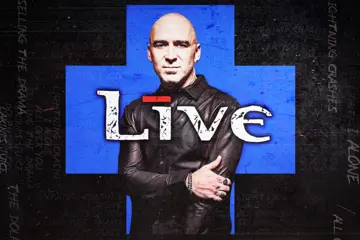Aggressive new anti-scalping laws, which are set to be ratified by the New South Wales government before the end of the year, have the support of music promoters, but has on-selling websites up in arms today.
The proposal – which launched with the support of Ticketek and Frontier Touring – from Fair Trading Minister Anthony Roberts will force tickets sold through websites like eBay, Gumtree and viagogo to display the ticket, seat and row number while advising the buyer of any terms and conditions – particularly any condition that allows the ticket to be cancelled if it is on-sold (Tickets will be need to carry a warning if that is the case). According to a representative for the Minister the proposed legislation will also “put the power back in the hands of the event organisers” by allowing them to determine a price cap on the secondary market.
If a promoter decides that tickets shouldn't be on-sold for any more than, for example, 25 percent of the face value they will be able to contact the on-seller to request they take down the advertisement. If not removed in a “reasonable time” the office of Fair Trading can be informed and the secondary seller could face a monetary punishment.
At this stage the office is looking at a fine of approximately $5,500 per advertisement.
Big Day Out CEO Adam Zammit told theMusic today, “Right now it seems this [the legislation] is being driven by ticketing companies trying to reposition themselves in a crowded market than it is truly based on solutions to a problem which varies in its veracity depending on marketing conditions and demand.
Don't miss a beat with our FREE daily newsletter
He said, “Fair access and marketed price is always the priority of our industry and looking after fans first is the single priority. I'm not convinced yet that that is at the heart of the ticketing companies' intentions right now. We will see. Big Day Out and Oztix work as hard as anyone to limit issues of fraudulence in ticketing and have few instances of this happening.”
Last week Mushroom boss Michael Gudinski told theMusic that enforceability was they key issue facing anti-scalping legislation. Queensland has a ten percent cap for on-sold tickets, but it has proven difficult to enforce as scalpers find ways around the regulations, including the tactic of loading postage and handling fees.
“The government needs to step in,” Gudinski said. “Events have become such a big thing in people's lives… concert tickets are one of the most sought-after commodities.”
Gudinski has encountered scalpers a number of times in the past 12 months, particularly with tours from Bruce Springsteen and Justin Bieber.
In a statement coinciding with the announcement he added, “For too long scalpers have been able to hide behind anonymity online. Music should empower and real artists do not want to see their fans ripped off.”
The entry of website viagogo into the Australian market has fuelled the anti-scalping debate recently and today the global ticket on-selling platform's Head of APAC, Alex Levenson, said, “When you regulate and make things more difficult, people choose the easiest route – and the easiest route in this case is to return to buying and selling tickets on the black market in pubs, car parks and outside venues. That would be a step backwards, not a step forwards.
He added, “We believe that it's most important that fans have safe, secure and guaranteed access to tickets. We also believe that once you have bought a ticket, it is up to you what you do with it - and eight out of ten Australians agree with us.”
The Minister's office confirmed to theMusic today that they're understand the need for a secondary ticket market, particularly for people needing to pass-on bought tickets, but said the proposed legislation would allow event organisers to be accountable to be accountable to their own punters.
Minister Roberts said, “Event organisers find that scalpers profit despite bearing no risk in staging a major event… These measures will give greater protection and transparency for consumers with minimal cost and disruption for event organisers.”
Article updated 7.15pm to correctly reflect the context of Adam Zammit's comments.















